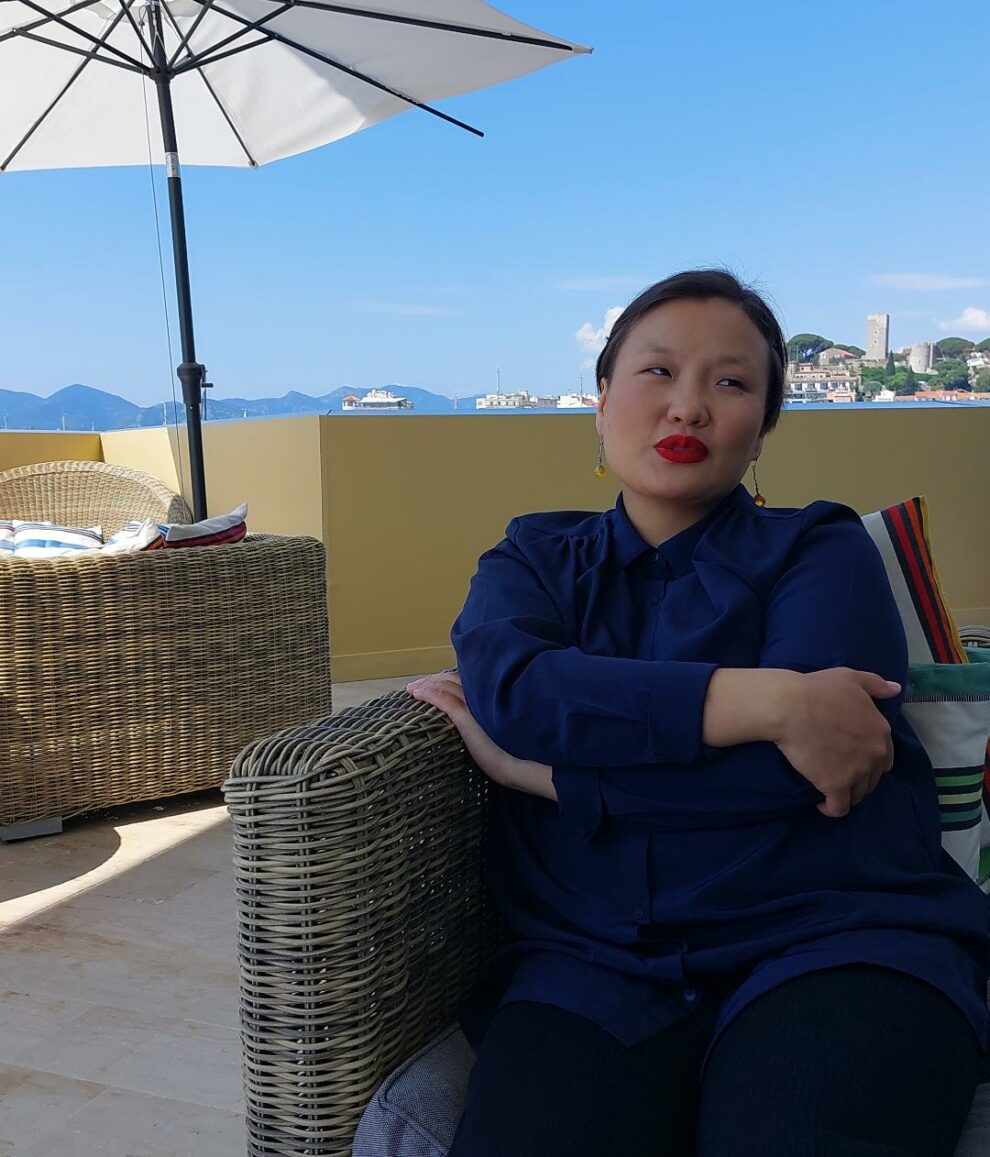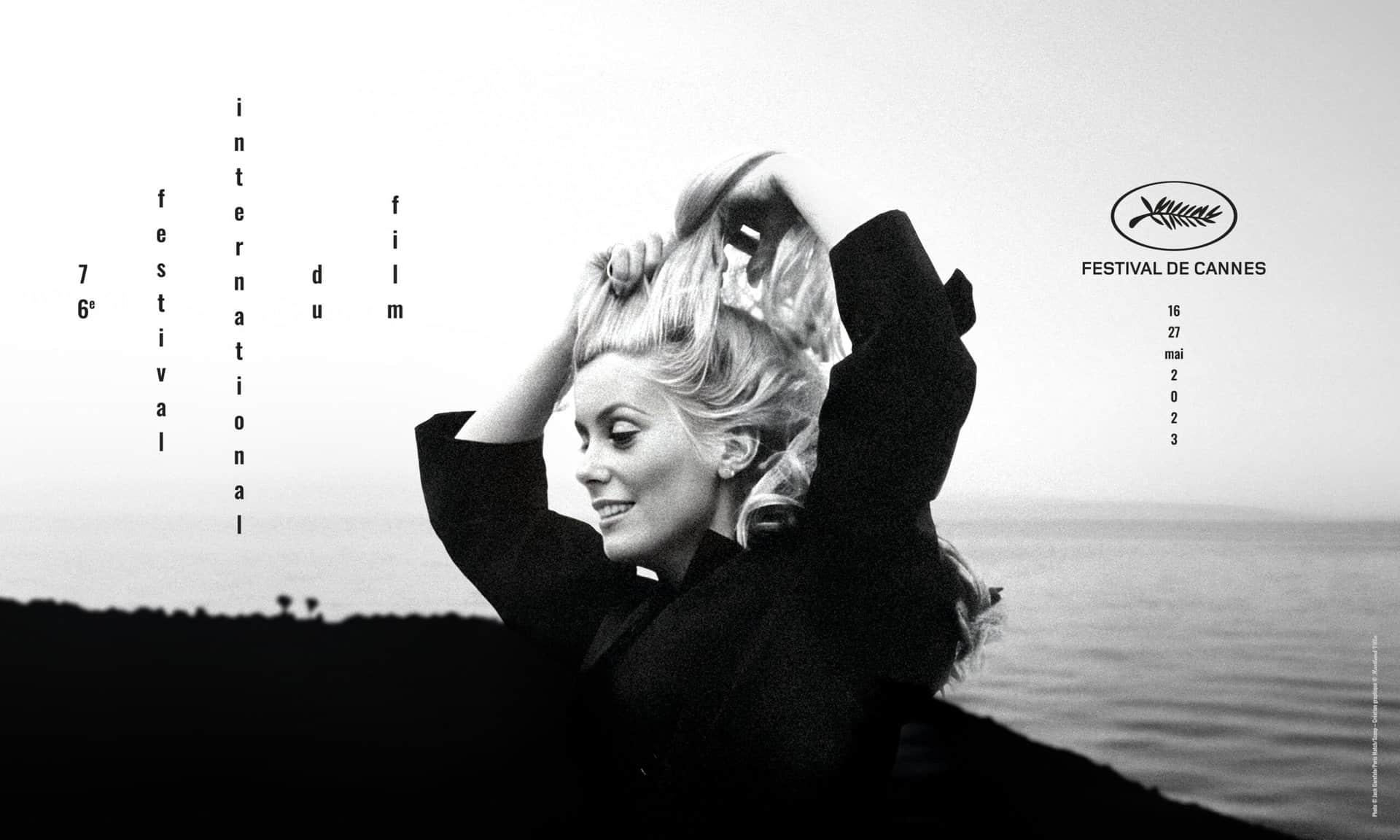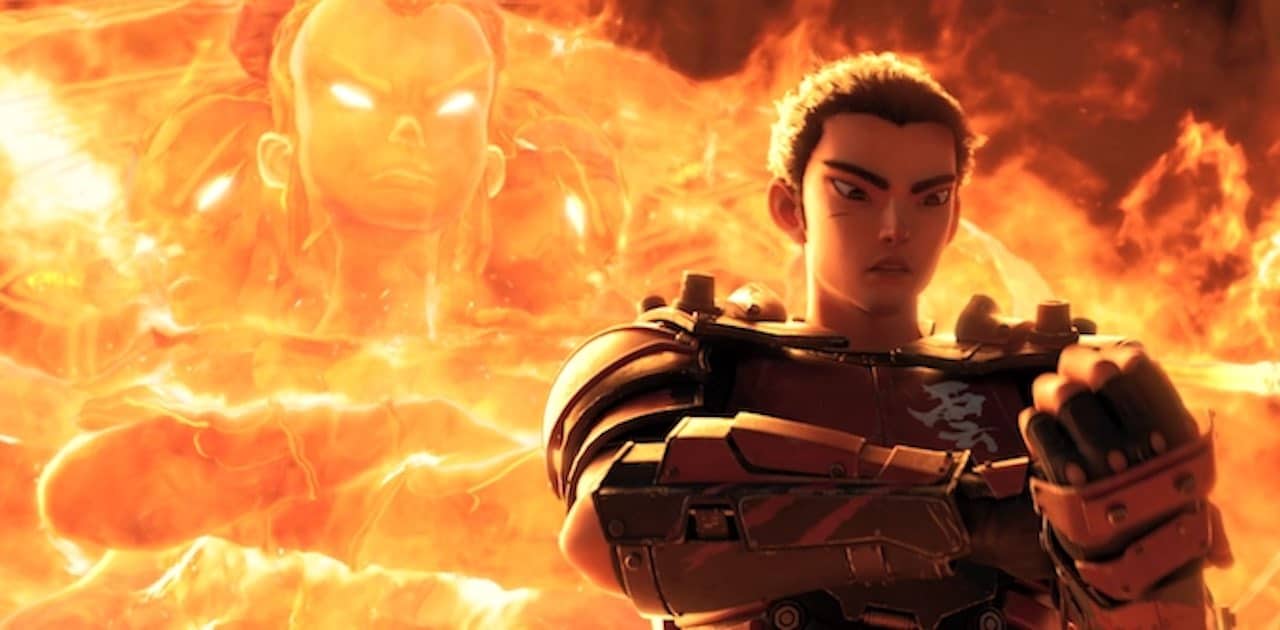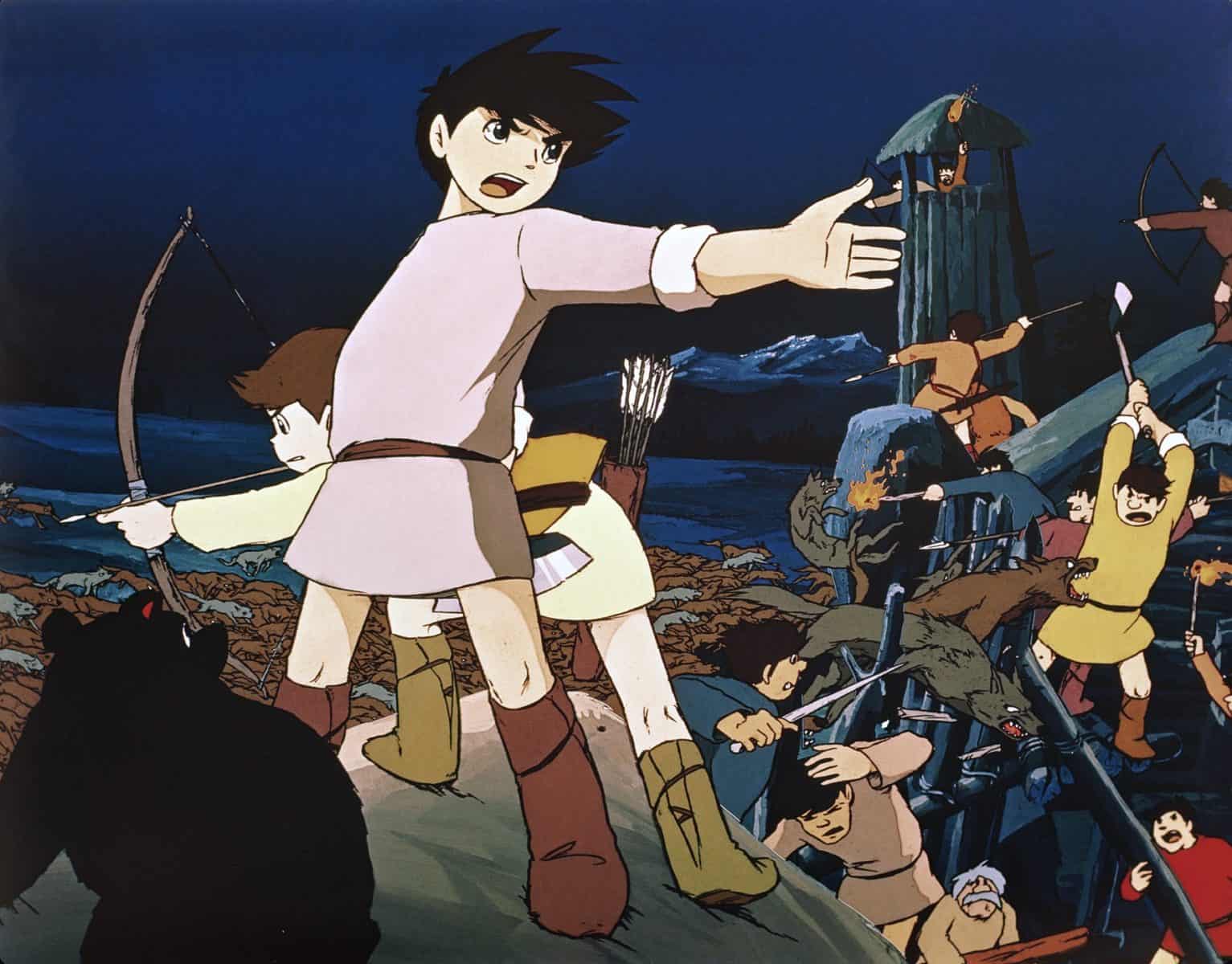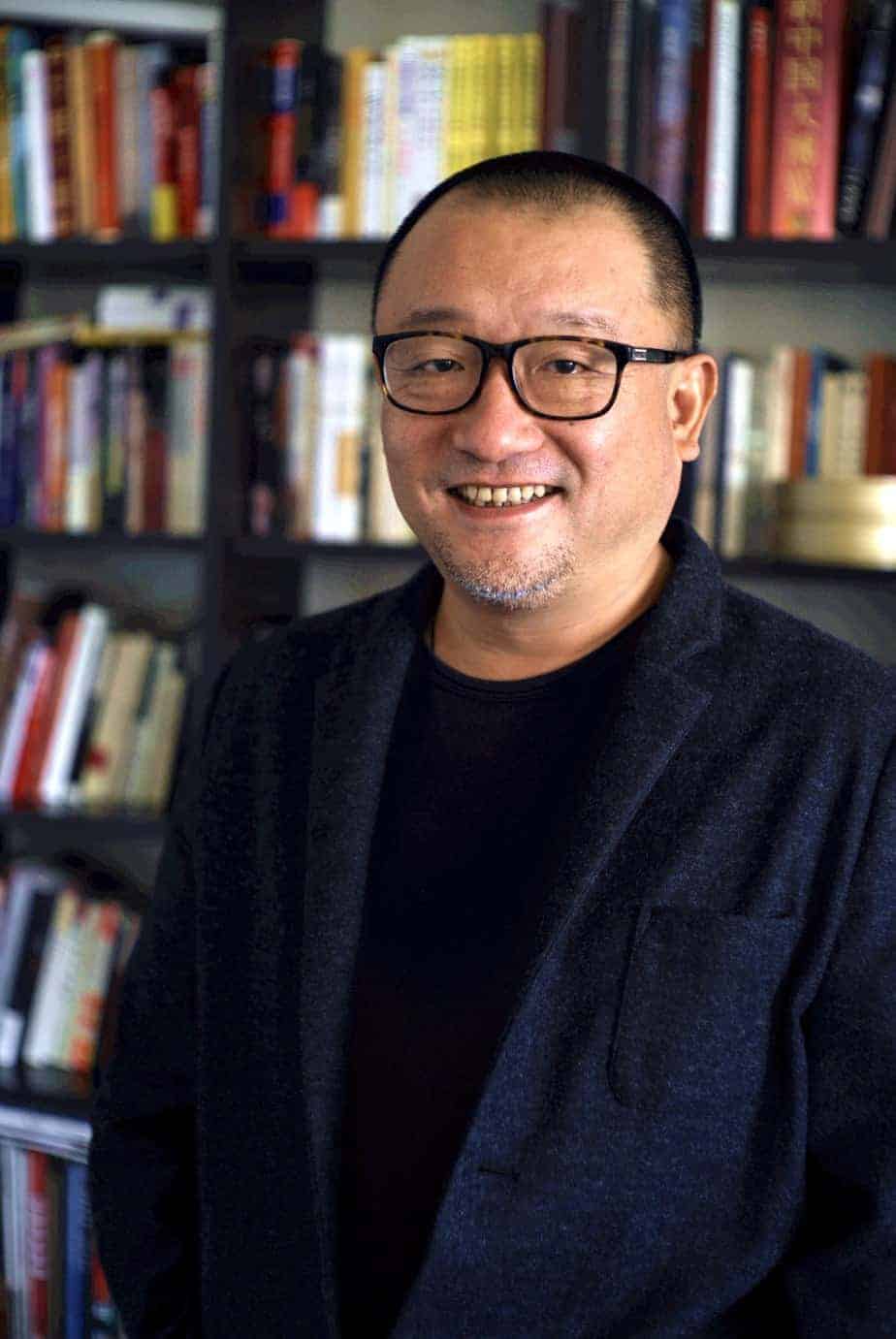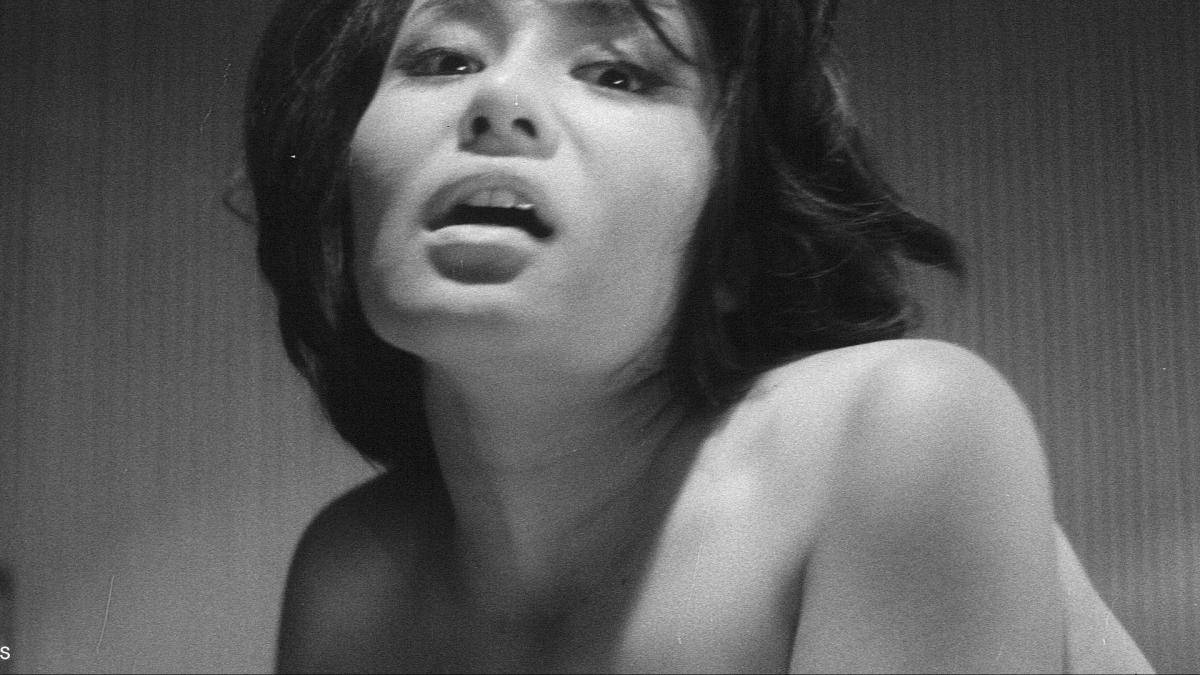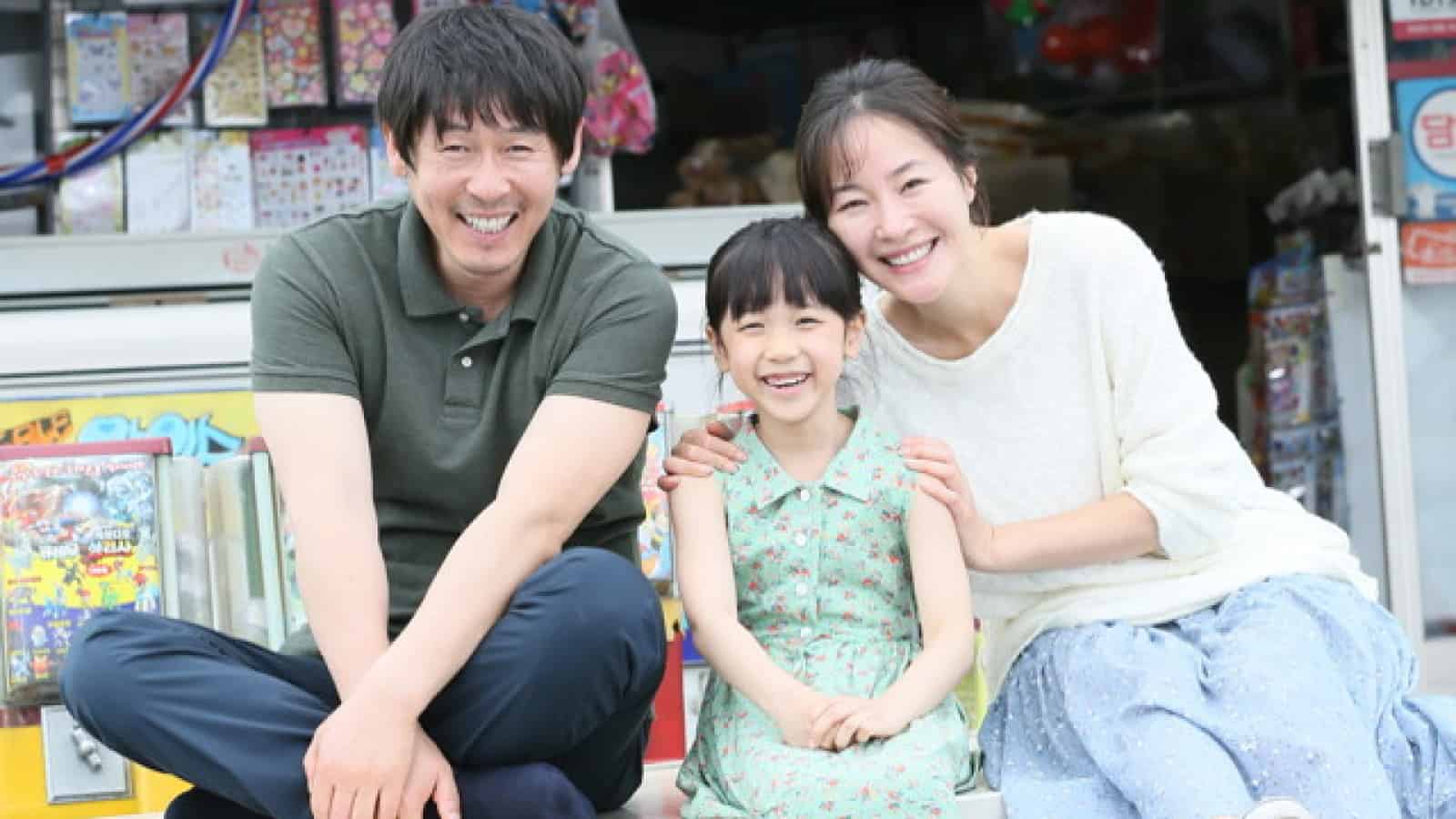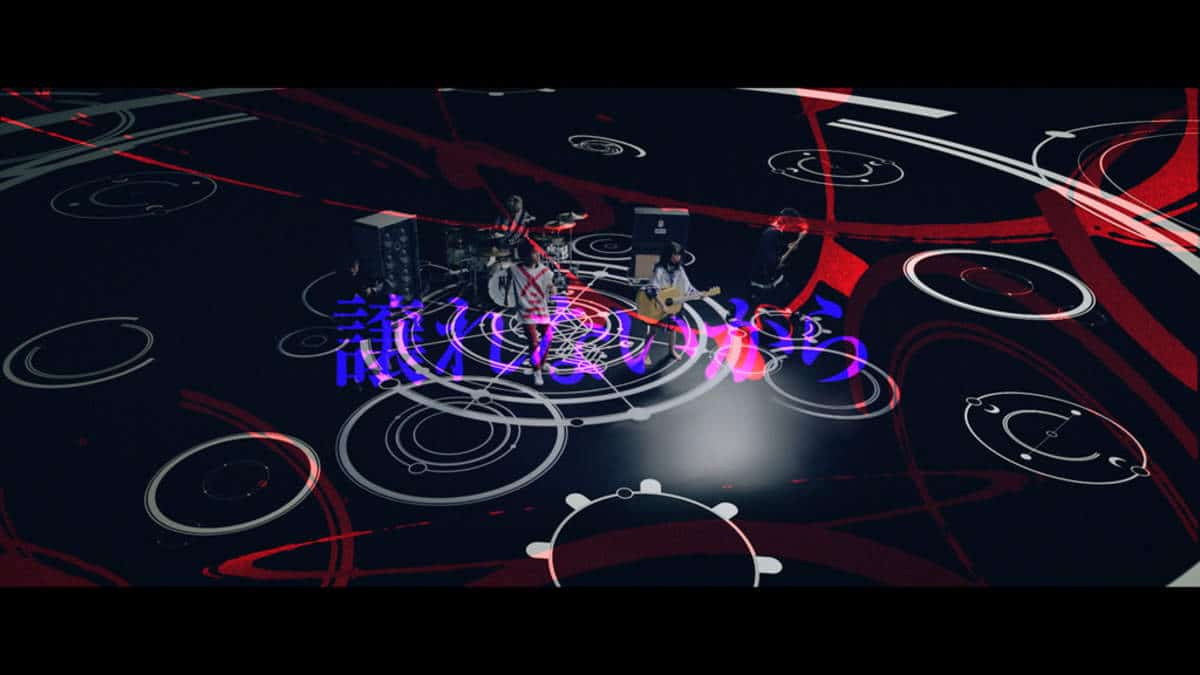Meeting a down-to-earth talent in Cannes is always a bit of a shock, especially if it's a one-on-one interview in a nice setting, untimed by the publicists who handle the red carpet folks, telling you how privileged you are to be granted five minutes to be in their presence. This year is parfticularly challenging for the journalists accredited in Cannes, since they are told that some stars won't be giving any interviews at all, and if they kind of are, those turn out to be junkets involving so many people at the table, that the same gig gets published in 23 languages the next day.
The talent we spoke to is writing history. Zoljargal Purevdash is not only the first Mongolian director with a film in festival's 76-year-old existence, but her debut feature “If Only I Could Hibernate” that runs for both The Golden Camera Award and the main prize of the Un Certain Regard competition, is a full-bodied, cinematographic experience worth seeing.
Purevdash is a generous interviewee, focused on questions, and blessed with the ability of answering them without beating around the bush. This interview that took place during the Cannes Film Festival on the so called Ambassadors' terrace overlooking the city, has more or less written itself.
The story “If Only I Could Hibernate” follows the hardships of a 15-year-old Ulzii (played by a great talent to watch Battsooj Uurtsaikh) who lives in the yurt district outside of the Mongolian capital. Talented in physics and with great aspirations to get out of the poverty-stricken environment, he also has to battle his mother's alcoholism, and trying to earn money to make the tent warm for his younger siblings, and bring food to the table.
If Only I Could Hibernate is screening at Cannes
What is it like to know that your movie is the first from your home country to be competing in Cannes?
I am really honored, extremely happy, and of course – lucky. I actually didn't know that there never was a Mongolian film in Cannes before, because we have notable directors whose films travelled to international film festivals, and I was completely convinced that they must have been in Cannes as well. So, when the artistic director Thierry Fremaux said that at the press conference, I couldn't believe my ears. I felt a mixture of joy and pressure. That was unexpected. He went on about how this was the historic moment for the Mongolian cinema, and I was thinking: “I never wanted to become a part of history, but thank you.” So, basically, I am sitting in disbelief, listening to his words about how very much he was looking forward to see Mongolian filmmakers walking the red carpet and I knew that I absolutely needed to bring the kids to Cannes, and do that walk with them. All three of them are here.
Could you tell us something about the script you wrote? Was it based on research or on personal experiences?
This is going to be a very long answer. I was born and raised in my grandparent's apartment, but when I turned thirteen, my mom remarried and we moved to the yurt district. I suddenly found myself in that place which had a lot of social issues. I had to make fire, go get the water or coal. I was far away from my school, but since I was talented in math and physics, and I went to many competitions, I wanted to go to a good school.
My mother opened a small store in the districts, and all our customers had some issues, they were going through hardships due to poverty, and they couldn't afford much. They couldn't keep their yurts warm, their electricity would be cut off, and they needed to feed their children. My mom would just generously give them groceries and coal for free. When I was helping her to run the place, those people would just come around and tell me their stories. Most of them were migrated nomads. Our little cornershop became a story bag. People could never pay on time, and my mom was falling into bankruptcy and then she also started borrowing from other sellers on the market, brought goods to her store, and then gave them to the poor again. I just wanted to get out of poverty, and not live there. I started competing in physics, but I would land the 6th or 7th place, just enough to qualify further. I wanted that gold medal which, of course, was always given to students from the top schools in Ulaanbaatar. I begged my mother to let me attend one of them, and since she was saving money for my university studies, I used those savings to go to a good highschool. It is there I discovered a drama club, and I joined it. Now, I always loved watching movies, but I didn't dare dream about becoming a filmmaker, because I was the oldest child and had to take care of my mom and my brothers. But, once I joined the club, I waved goodbye to physics. And, I was lucky to be granted a full scholarship to study in Japan. It's in Tokyo that I made my bachelor's degree, but I never wanted to shoot movies anywhere outside of Mongolia. I didn't understand why I had to stay in Tokyo to make films, so I returned to my yurt district again.
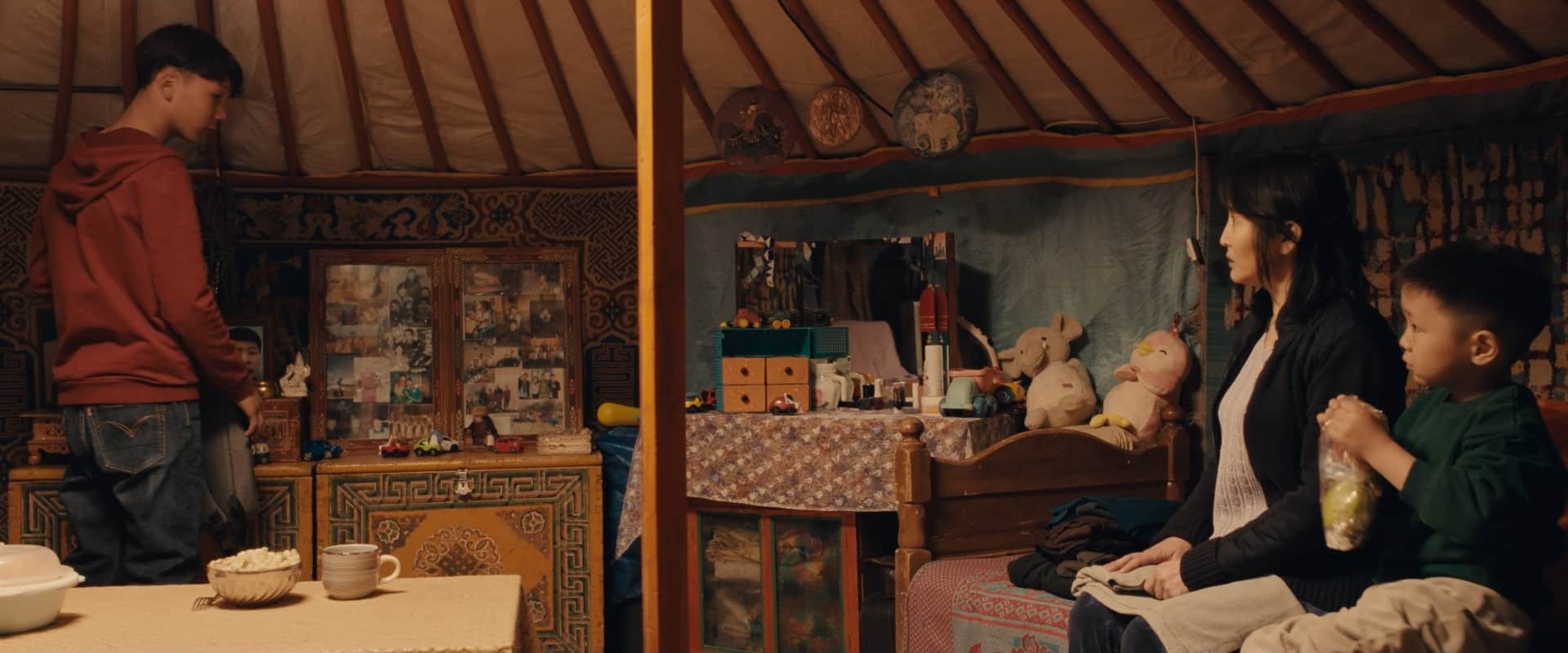
You had a very interesting, long road to the career you are having now.
I started working in the local film industry as assistant director, I volunteered for a small short film festival, then I became a mom, and it's tough combining the two, so I had to quit working in film for a while. On the other hand, because I needed money, I started working for a Japanese IT company as a data operator. You see, I am fluent in Japanese. I was finally able to take care of myself, unlike previously, working as an artist. When you get a baby, you become super careful about everything, and that was the moment I became aware of many things.
What was the breaking point that made you finally shoot a film about life in the yurth district?
It was in winter 2016, when the Mongolians finally got aware of the air pollution. The first thing they did was to protest against it. People became so harsh against the district population, and the social media was filled with hate speech. They tweeted messages about “f***ing nomads who should go back where they came from”, we were called peasants and such. It was never our choice to heat the yurts that way. Parents need to keep their children warm, they have to make the ovens burning. So, the Ulaanbaatar citizens were fighting the symptom and not the source of it. Nobody attacked the system. What we are bringing is not the smoke, it's the poverty. It was heartbreaking to see all those emerging hate comments. Because of many demonstrations, the government made new regulations which banned unrefined coal, and the refined was introduced instead. But, someone who can not afford unrefined coal, can also not afford the refined. So, we still have very big smoke in winter. My kid keeps on coughing, and I can not bear to listen to that nonsense. This is why I started writing a story about a 15-year-old boy who has a lot of energy and big hopes in bright future. He works hard to secure himself a better life. I gave him a lot from my own life, also regarding his relationship to his mom. I was very harsh to my mom, and no, she wasn't an alcoholic like Ulzii's.
I wanted to show what an innocent kid has to do in order to survive, to earn money to provide for himself and his younger siblings. He is also a huge talent with big dreams. My wish was not to complain about the problems of the district, I wanted to point out at solutions which start with good education. I was lucky to get one, but a good education isn't something that many people can afford. I look at my community now and I see my generation, my friends and my neighborhood. Some of them became alcoholics, some started developing health/mental problems. I am not generalizing, and it doesn't apply to everybody. But we have too many kids that need to be fed, but their families can't break out of the poverty circle because they were not given chances. I don't want that cycle to continue. I want it to stop.
How?
We should have good schools in the yurt suburbia. If you are facing neglect by your parents at home, at least you can get some comfort at school. The warmth, food, knowledge. Kind teachers, and safe environment is all it takes.
Check also this interview
I guess that the “If Only I Could Hibernate” release in Mongolia is planned.
I haven't decided yet on that. I produced the film myself, and I am responsible for the release in Mongolia, but I am not sure about the time. It will be screened at a local film festival in September, but what actually makes me hesitant the most, is that I wish to show it in winter when all activism gets set in motion again.
I've noticed a long list of organisations and private founders in the film's opening credits, so I guess that the financing process was the longest.
It was very challenging, and I had many rejections. It took me seven years to finish the film, but it was worth it. I wanted to present the reality, and giving up was not an option. I kept on applying. I also didn't make it easy for the international producers who are used to long-term planning, and I was determined to start shooting in winter 2021. They got afraid. I admitted that I didn't have the money for the post-production, and yet I knew that I had to start shooting the film. The production company loved the script, and i was amazed how much support Frederic gave me during those years of intense work on the project. Finally we also got the post-production money, and for the first time, I was working with a professional editor, Alexandra Strauss, and that was amazing.
How did you find the amazing French composer Johanni Curtet who did the film score?
Ulaanbaatar is a great city because there is a mixture of modernity and nomads. As a nomad, you have your music in you, and when you come to the city it mixes with modern beats. So, I had a 15-year-old boy from the district, and like his friends, he listens to hip-hop. My boy is from the particular part on the eastern side, and everyone there knows the deepthroat singing. I needed the mixture of both to define his rhythm. Also, there is a similarity between bird song and the people. You go into your body, you feel the sound coming out. Johanni Curtet is an ethnomusicologist, and he's been working for 20 years on/ with the Mongolian music . He loves Mongolia, he is married to a Mongolian woman, he is even fluent in our language. He understands our history, society's issues and problems. You see, I want both sides of society to understand each other and to fathom why there is a huge amount of smoke being produced. Rich and poor breathe the same polluted air, so we simply should not hate each other. Curtet knows all of that, and he became so passionate about the project. It's his first time as a film score composer, and I hope that he will get many more projects. I found out about him because he made a wonderful CD with throat singing, and I went to the release of it, but I couldn't get in touch with him. When I wrapped up the film, one of my French producers was surprised that no one replied to my mail. So I wrote one more, and they finally got back to me. When I wrote the first draft of my script, I sent it to Talents Tokyo who have the Emerging Directors program, where I finally met my French producer Frederic Corvez (also producer Chie Hayakawa's “Plan 75”) who gave me a lot of encouragement, and a “why not, let's do it” reply.
Let's talk about your young cast, the three children who play siblings. How did you find them?
I wanted to work with kids who live in the yurts because I had to shoot in the coldest period. I needed kids who knew the pain & glory of that place. So I casted them on the spot. We rehearsed for two weeks. I was very honest to them from the beginning, and they were not used to an adult listening to them. I told them where I come from, about my experiences with bitter cold, things that I went through and what I wanted to show in my movie. The great thing was that all those social issues were very close to them. Even alcoholism was something they knew about. So, they took their roles very seriously. I also told them that I still live in the yurt district, and that's another story. My husband and I had an apartment in the city which we had to sell to fill the financing gaps for the film. I know how crazy that sounds but I would literally go nuts if I didn't shoot it.


